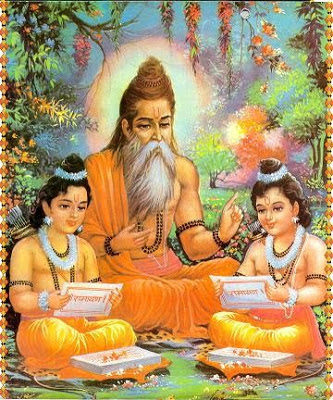The average human being of the 21st century has a problem: if he does
nothing he becomes sedentary. And it is so easy to become
sedentary! And so comfortable! Just do nothing.
Why does this happen? Simply because we are a relatively young species
whose technology has advanced much faster than its physical body. And it
was that four days ago we lived in the caverns ... If we didn't run we wouldn't
hunt and we didn't eat; if we were not agile to climb trees, we ate some
predator; if we did not have physical strength we did not last many
winters. That is, if we were not physically fit we would not survive.
Today, what is the need to run, hunt, climb or fight? To eat just go to
the corner supermarket, go down the stairs (by elevator), walk a little (some
go by car) and return with the purchase home (again by elevator). To
protect us from wild animals (on two legs, because those on four are in
extinction)? Nothing better than a Prosegur alarm, Securitas Direct or a
fat lock. What do you have to do to be the alpha male of the tribe and
secure the offspring? Nothing man, just bring out the wallet and see that
it is well chubby. Anyway, what generates all this?: sedentary
lifestyle . What is a sedentary lifestyle? Overweight,
cholesterol, triglycerides, being more rigid than the goalkeeper of a table
football and having less physical strength than Spanish justice.
How is this solved? How do you fight sedentary lifestyle? There are
four options or ways:
1.- Stay as I am , but worse and worse, with the
acknowledgment of the years. This is the easiest option to follow, it is
like the grooves left by torrents or rivers ... When it rains the water always
goes the same way because it offers the least resistance.
2.- To worry
about the aesthetics without taking out the garbage
can. That is, plastic surgery, some miraculous diet or exercises to lower
the belly. There are also those who crush hours and hours in the gym every
week doing weights and running like a chicken through Ethiopia to run out of a
gram of fat and to see the "chocolate tablet"; not for clear
health, but for aesthetics.
And what is aesthetics good for? To link more ; for
nothing else, make it clear. That is to say, we invest years of our life
to have a fitness body with the objective that when the summer arrives we have
the opportunity to take off our shirt and oh, the females fall at our feet (or
if it is a woman, that the men we get torticles). The problem is that if
that facade has no content ... bad matter. If we put meringue on shit,
shit is still what it is: shit.
3.- Do sports ,
which everyone says is very good, also is very pro and gives you points for
society. What an athlete you are, huh! You go to the Decathlon, you
fill yourself well with breathable synthetic clothes, some running shoes (but
not very expensive huh!, That our knees and hips do not deserve so much, it is
only for hitting) and wing, to throw miles; to sweat like a bastard and in
the middle of town, or the sports center, stop snorting and stop the clock
(important that people see you making this gesture). «What athlete is X
person! How do you take care of yourself! ”People will say. Thing
that good, seen from a social perspective is not so bad. The problem will
come when X person is fifty years old, his joints broken and his heart waving a
white flag with his tongue out.
Notice for navigators: sport is not synonymous with health . The
sport is fine if you get paid to do it.
That is, if you are an elite athlete (car player is the best sporting
profession you can choose, for the pasta they earn) and your monthly salary
derives from it. In that case, if you are shattering at fifty, you look at
your checking account and say, “Well, it was worth it; excerpts from the
trade, like any other ». But male! Hit you half marathons and
marathons every week for hobby, I think at least masochist. If in that
sucked face that you have it shows that very healthy you cannot be. The
sport also ends up becoming an obsession, it becomes addictive, a
drug; and really it is, since a lot of hormones are released with physical
exercise that eventually make you feel bad if you fail to generate them.
Another warning for navigators: no matter how much sport we do, no matter
how much we run, no matter how little fat we have and no matter how much we
take care of ourselves, we will die the same. I remind you in case you had
forgotten.
4.- Saint Barbara, Saint Barbara ...! How awful I
am! I've seen the wolf's ears! The doctor has told me that either I
take care of myself or ...! Friend, this is when you care about your health and
the goal is to recover it.
-Yes, I have signed up for the gym, but both aesthetics and sporting purpose
bring me carelessly, I want to be healthy.
-Okay, okay, I won't worry , let's design an exercise routine
and come two or three times a week; You will see how well you are doing.
And it is true, that in months you will be much better; As you feel
better, you will not remember Saint Barbara and what will happen? You will return to point 1.
Health is like repairing a machine that requires maintenance (in fact the
physical body is a machine); and there are two types of maintenance:
the corrective and the preventive .
People look for the corrective in 90% of the cases, that is, that it heals me,
that my health problem is solved and then ... I disregard until the next
repair, which will be worse and worse. Maintenance? Ufff, what
sacrifice not? We better wait for it to break again and we will repair
it. This is how it goes.
5.- Practice Yoga . It is that Yoga is the host, it is the
best and above all, the most intelligent . At a stroke we
put ourselves before the problem of sedentary lifestyle, by establishing our
weekly routine. We work on movement, strength, endurance, flexibility ...
and all this without forcing or damaging the physical body. We also work
inside, that is, apart from covering ourselves with meringue, we purify the
shit and transform it; We do something like an alchemical process in which
we transmute lead into gold. We may not get a chocolate tablet for doing
Yoga, but who needs it?
Yoga is first and foremost a preventive exercise , which
will help us maintain health longer and above all have a better quality of
life, even though, as much Yoga as we do, we will also die someday. Yoga is not a panacea.
Therefore, having seen all this, knowing that we will all die sooner or
later and that we have the "Gift of Free Will" (sacred gift where
there are any), that each one chooses one or several of these five options,
well chosen will be if the We choose freely, voluntarily and
consciously. First of all, be free, do what you want and live your life as
you want, but do not fool yourself and take responsibility for the consequences
of your actions.
Aimar Rollan (Gopal)



























